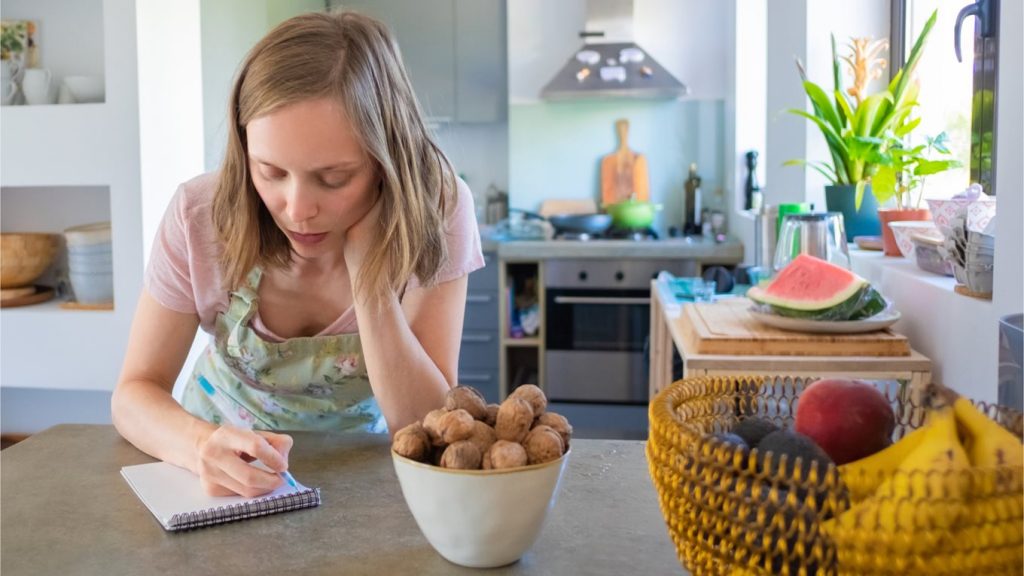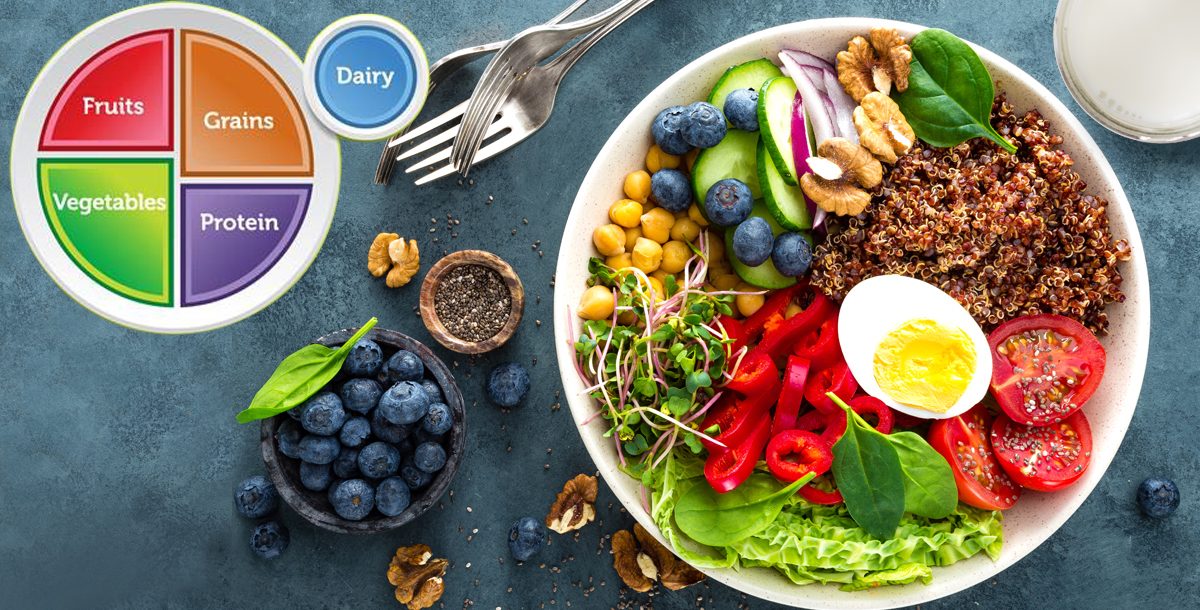No matter how busy things get, planning can really help you get healthy meals and snacks.
No matter how busy things get, planning can really help you get healthy meals and snacks. Having a meal plan can save time, money and reduce food waste. Just remember to stick to your shopping list.
Here are six steps to creating a meal plan:
- Give yourself time to plan
Set aside time each week to create a meal plan. Think about:
How many meals you need to prepare in a week
When you need to make quick meals or prepare them ahead of time

- check what you have
Check what you already have in your cupboards, fridge or freezer. Check the ‘shelf life’ of your food to see what you need to use up first and plan your meals around that first. Read more shopping tips here
The way you store your food can have a big impact on its shelf life. Follow these tips:
Check labels for advice on how to store your food.
Keep new items at the back of the fridge/cabinet and old items at the front of the fridge/cabinet.
Label all food with the name and date before freezing for easy identification.
- include some of your favorite meals
Make a list of your favorite meals
When you have extra time, introduce new recipes
Consider hosting a theme night, such as Meatless Monday.
- Use up your leftovers
Plan meals for the next day that can be refrigerated and reheated or served cold, such as baked pasta, soup, shepherd’s pie, curry, lasagna or beef stew.
Use leftover vegetables in an omelette, soup or salad, or add leftover meat to a curry or stir-fry.
Remember that leftovers stored in the refrigerator must be used within three days.
- Cooking in bulk
Cook a little extra and refrigerate or freeze leftovers. Pies, curries, stews and casseroles freeze well.
If you are using the oven, consider what else you can cook at the same time. If you’re making a casserole, you could cook some chicken breasts to put in sandwiches.
- Make your ingredients work
Choose recipes that use the same key ingredients, such as roast chicken, chicken stir fry and chicken sandwiches
Pick 2-3 key vegetables and add them to meat, pasta or fish dishes. For example, peppers, broccoli and sweet corn can be added to a beef stir-fry, but can also be used to make vegetable pasta or served with meat or fish.



